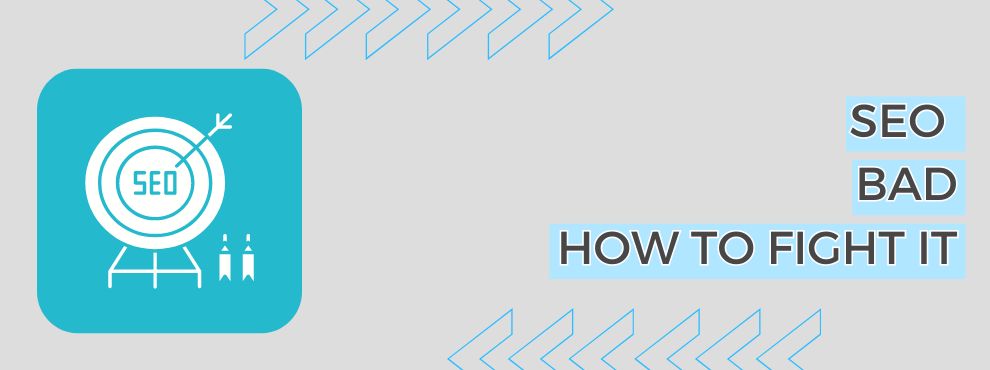SEO (Search Engine Optimization) is a crucial tool for improving a website’s visibility in search engines. However, not all SEO practices are beneficial. “Bad SEO” or “Black Hat SEO” refers to deceptive or unethical techniques used to manipulate search results.
These practices can result in penalties from search engines, negatively affecting a website’s reputation and traffic.
what is bad SEO?
Bad SEO includes any technique that seeks to manipulate search engine algorithms in a deceptive manner. Unlike ethical SEO (White Hat SEO), which focuses on improving the user experience and following search engine guidelines, bad SEO seeks to get quick and often temporary results.
Common bad SEO practices
- Keyword Stuffing: consists of keyword overloading in content, meta tags and descriptions, with the intention of improving ranking. This can make content difficult to read and unnatural.
- Cloaking: displaying different content or URLs to users and search engines. This tricks the search engine into ranking the content differently from how a user would see it.
- Doorway Pages: creating pages designed to rank well in search engines and then redirecting users to a different destination. These pages are of low quality and do not provide value to the user.
- Link farms: networks of websites that link to each other for the purpose of increasing each other’s ranking. These links are usually of low quality and not related to the content.
- Duplicate content: publishing the same content on multiple pages or websites to manipulate ranking. This not only hurts the user experience but can also result in penalties.
Negative effects of bad SEO
Bad SEO techniques may offer short-term benefits, but in the long run, the negative effects far outweigh the gains. Some of the negative effects include:
Penalties from search engines
Search engines like Google have advanced algorithms that detect bad SEO practices. When a violation of the guidelines is detected, the website can be penalized. Penalties can range from a decrease in ranking to complete removal from the search index.
Reputational damage
Using bad SEO techniques can damage a website’s reputation. Users who encounter low-quality or misleading content may lose trust in the site, resulting in decreased traffic and a lower conversion rate.
User experience
Bad SEO often compromises the user experience. Irrelevant content, difficult-to-navigate pages and unexpected redirects can frustrate visitors, leading them to abandon the site.
How to combat bad SEO
Combating bad SEO involves adopting ethical and user-centric practices. Here are some effective strategies:
Focus on quality content
Content is king in ethical SEO. Creating original, relevant and valuable content for users not only improves the user experience, but is also rewarded by search engines. Make sure your content answers your audience’s questions and needs.
Correct On-Page Optimization
On-page optimization includes the correct use of keywords, meta tags, headings and internal links. Instead of overloading your content with keywords, use synonyms and variations to keep the text natural. Also, optimize images and use descriptive alt tags.
Ethical link building
Link building should be a natural and ethical process. Instead of resorting to link farms, look for collaborations with relevant and high quality websites. Publishing content such as guest posts on respected blogs in your industry can help you build quality links.
Regular monitoring and analysis
Use analytics tools to monitor your website’s performance. Identify suspicious traffic patterns or sudden changes in ranking, which can indicate the presence of bad SEO. Tools such as Google Search Console can help you detect and correct problems.
Continuously update strategies
The world of SEO is constantly evolving. Stay up-to-date with the latest search engine guidelines and adapt your strategies accordingly. Participate in SEO forums and communities to learn from other professionals and share knowledge.
Conclusion
Bad SEO may offer short-term benefits, but the long-term risks and consequences make it not worth it. Adopting ethical and user-centric practices will not only protect your website from penalties, but also improve the user experience and build trust in your brand.
By focusing on quality content, proper optimization and ethical link building, you can combat bad SEO and ensure the long-term success of your website.




Deja un comentario